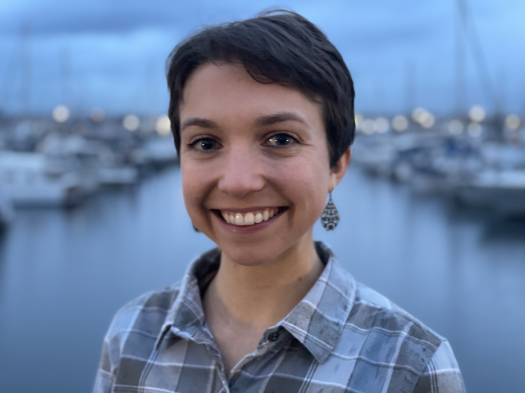Where do you work? How would you describe what you do for your job from day-to-day?
I am a fisheries specialist for the New England Fishery Management Council (NEFMC), based in Newburyport, Massachusetts. I work closely with state and federal fisheries scientists, economists, fishermen, individuals from academic institutions, and more to develop fishery management measures that ensure healthy and sustainable fish stocks. My areas of focus are the groundfish (cod, haddock, flounders, etc.) and Atlantic herring fisheries. The day-to-day work at the NEFMC involves running and participating in public meetings where scientists, economists, social scientists, commercial and recreational fishermen, and the public discuss current issues facing these fisheries. It also involves developing analytical documents that look at fishing footprints, environmental changes, community reliance on fisheries, the fisheries’ importance to the entire ecosystem, and more to respond to these emerging issues.
What excites your about the field?
The field is exciting to me because I get to interact with many groups of people with a diverse set of interests but all working towards the same goals of ensuring the long-term health of fish stocks and the environment. I am continually learning: new statistical models, current circumstances influencing seafood markets, new gear innovations, updated understandings of species’ life histories, and more.
What are the biggest challenges for your field and how are they being overcome?
One of the biggest challenges in my field is ensuring sustainable fishing can still occur while the number and types of fish change and move in response to climate change. The Gulf of Maine is warming faster than 96% of the world’s oceans. Numerous different solutions have been developed or are under development. For example, more environmental factors are being incorporated into the methods that predict how many fish are in an area, some areas are closed to fishing during certain times of years to protect spawning fish, and scientists and fishermen are working collaboratively to gather more data on fishing trips and more.
What advice do you have for a student who would like to work in the field of fisheries management or conservation? What non-engineering majors or skills would you recommend?
Fisheries management and conservation is collaborative work conducted by state and federal government organizations, environmental non-governmental organizations (non-profits), commercial and recreational fishermen and harvesters, and scientists from numerous disciplines. Getting as much experience in every one of these categories will help understand how regulations and laws are made and changed and who are the impacted individuals. Take a wide range of courses (political science, economics, biology, GIS, statistics, etc.) but also make phone calls, send emails, and talk to folks in the field! There are numerous ways to gain experience from interning with a non-profit, working a summer in Alaska, partnering with a political advocacy group, and more. The more out of your wheelhouse something feels the more you will learn.
What is your fondest memory from your days as a student at SU?
Now this is the hardest question! For me, it is a tie between the Blakely Island summer field courses with Dr. Whitlow and working in Dr. Hultgren’s lab. But what it boils down to is the professors at Seattle U who made my experience unforgettable and equipped me for the future in more ways than I understood or appreciated at the time.

